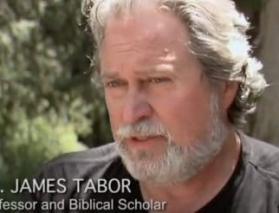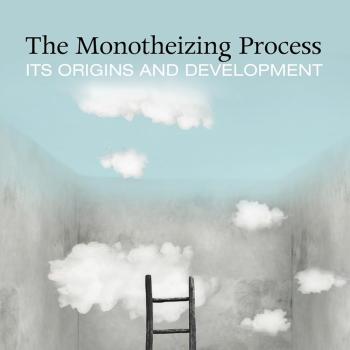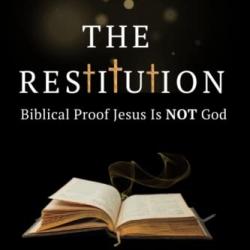Christians, Muslims, and Jews professedly believe in one God. And most of them believe there are no other gods. That is why Christianity, Islam, and Judaism are identified as “the three monotheistic religions of the world.” All three are based upon a sacred text: the Christian Bible for Christians (Old and New Testaments), the Qur’an for Muslims, and the Jewish/Hebrew Bible (Old Testament) for Jews. Muslims respect the Christian Bible, though they allege it suffers from corruptions introduced in its transmission process. Thus, the Qur’an often calls both Christians and Jews “people of the Book.”
So, these three religions have a lot in common. Although nearly all Christians are Gentiles, Christians and Jews have the same sacred text–the Old Testament–except Christians add the New Testament. Jesus, whom Christians worship, was a Jew. And all writers of the Bible, except Luke, were Jews. All three religions believe in the concept of the Messiah of Israel. As for the Qur’an, it mentions Jesus 25 times, and always honorably except denying he is God. It affirms Jesus’ virgin birth, sinlessnes, miracles, messiahship, heavenly ascension, future return, and that he will be the judge on judgement day. The Qur’an seems to present Jesus as being greater than Muhammed, though both as prophets.
Christians and Jews agree that they, intellectually at least, worship the same God–the God of creation and of the Jewish Bible. But do Muslims worship that God? Many think they don’t. But people need to understand that the Muslim practice of calling God “Allah” does not necessarily indicate, intellectually at least, that they worship a god other than the God of the Bible. For “allah” is the Arabic word for “God/god,” and the Qur’an constantly interchanges the words “Allah” and “God.” Many Christians do not even know the name of the God of the Hebrew Bible–which is YHWH/YHVH and can be written Yahweh or Yehvah–even though it appears nearly 7,000 times in the Hebrew Bible!
Even though these three religions have a lot in common, they remain very divided. I think they could become significantly united by each of them changing one particular element of their belief system. It would be three tradeoffs that would result in a compromise. Each element that would be changed is most important to one or both of the other religions. What are these three beliefs? Christians would give up believing in their doctrine of the Trinity and that Jesus is God, Muslims would give up believing Jesus did not die on the cross, and Jews would give up believing Jesus was a false Messiah. Of course, it would help these religions to make these changes while in dialogue with each other. And Christians would also want Muslims and Jews to go father by believing Jesus atoned for the sins of the others, and God verfied this and Jesus’ Messiahship by raising him from the dead.
Nearly all Christians believe in what they call “the doctrine of the Trinity.” In the English language, it means God is one essence existing as three persons: the Father, the Son (Jesus Christ), and the Holy Spirit. Trinitarian Christians claim these three persons of a supposed Godhead are co-equal and co-eternal. Yet Trinitarians deny that these three persons of the one Godhead constitute three gods.
Muslims and Jews generally allege that Christians are polytheistic because they believe in the doctrine of the Trinity, which they think indicates three gods. Muslims and Jews think it is folly for Christians to assert that three equals one, that is, that the three persons constitute one God. Actually, the Christian Bible states repeatedly that God is one; it never expressly states that God is three persons; and it does not contain the word “trinity” much less so describe God. Thus, Christians arguably would not be going against their sacred text if they gave up believing in their doctrine of the Trinity, which was formulated over a period of centuries by church fathers by means of the ecumenical councils and creeds.
Muslims view their Qur’an largely as a corrective revelation. The main thing they think it corrects is the Christians’ doctrine of the Trinity. The Qur’an repeatedly denounces Christian belief in a triune God. And Jews reject Christian interpretations of their Bible as indicating God is a Trinity. The Qur’an says in Sura 5:73, “Unbelievers are those who say, ‘God is one of three.’ There is but one God.” And Sura 4:171 says, “People of the Book, do not transgress the bounds of your religion. Speak nothing but the truth about God. The Messiah, Jesus son of Mary, was no more than God’s apostle and His Word … So believe in God and his apostles and do not say: ‘Three.’ Forbear, and it shall be better for you. God is but one God. God forbid that he should have a son!” Muhammed meant God did not give birth to another God, comparable to human procreation. So, Muhammed denied that Jesus was the Son of God. It likely was because Christians he knew were confused on this. Similarly, the Qur’an denies that Jesus is God. Twice it says, “Unbelievers are those who declare/that say, ‘God is the Messiah, the son of Mary'” (Sura 5:16, 72).
So, the Qur’an denies Jesus’ death by asserting, “They declared: ‘We have put to death the Messiah, Jesus son of Mary, the apostle of God.’ But they did not kill him, nor did they crucify him, but they thought they did'” (Sura 4:157). Qur’an scholars usually say the last clause in this last sentence means something like, “he was made to resemble another for them.” They say someone else was crucified and died who looked like Jesus. Some Gnostics asserted this long before Muhammed lived. Obviously, Muslims cannot believe in Jesus’ resurrection from the dead if they do not believe he died. The Qur’an says of the Jews and Jesus, “They did not slay him for certain. God lifted him up to Him” (Sura 4:158). So, the Qur’an affirms the heavenly ascension of Jesus, yet denies his death and resurrection.
Muslims further claim that God would not have allowed his prophet to undergo such torture and defeat by his enemies such as being crucified. But the Apostle Paul says God told him, “my strength is made perfect in weakness” (2 Cor 12.9). Thus, the Bible’s last book, Revelation, presents Jesus as “the Lamb of God” who died but now lives in heaven and will come again in the future to the earth with much power and glory to defeat his enemies and establish his kingdom (Rev 6.16-17; 17.14; 19.11-21).
Many people think the main theological difference between Christians and Jews is that Christians believe Jesus of Nazareth was, and is, Israel’s Messiah, and Jews deny this. But that is a secondary disagreement. The foremost theological disagreement between Jews and Christians is that Jews say God is one person, thus denying the Christian docrine of the Trinity, that God is three persons. So, ideologically, it is easier for Jews to consider that Jesus is the Messiah of Israel than it is for them to consider that Jesus actually is God, as nearly all Christians insist. Yet the many sayings of Jesus in the New Testament gospels reveal that he (1) never identified himself as “God,” (2) affirmed the Shema (Deut. 6.4), that God is numerically “one” (Mark 12.28-34), and (3) constantly distinguished himself from God.
So, (1) if Christians would quit believing God is triune, thus believing only the Father is God so that Jesus is not God, (2) if Muslims would believe Jesus died on the cross for their sins and God raised him from the dead, (3) if Jews would believe Jesus is the Messiah of Israel and their risen Savior, I think they all would be right, the world would be a better place, and we’d all be God’s truly monotheistic people headed for glory! Is this possible? Or am I living in fantasyland, having a pipe dream or something?
…………….
To see a list of titles of 130+ posts (2-3 pages) that are about Jesus not being God in the Bible, with a few about God not being a Trinity, at Kermit Zarley Blog click “Chistology” in the header bar. Most are condensations of my book, The Restitution of Jesus Christ. See my website servetustheevangelical.com, which is all about this book, with reviews, etc. Learn about my books and purchase them at kermitzarley.com. I was a Trinitarian for 22 years before reading myself out of it in the Bible.
















